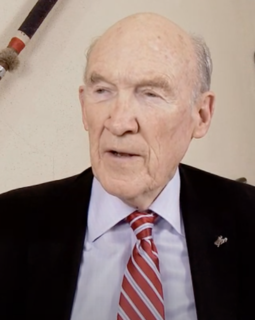A Quote by Mitch Kapor
Failing to continue to support the public higher-ed system in California will have devastating long-term consequences.
Quote Topics
Related Quotes
So long as we are under the illusion that we know best what is good for the earth and for ourselves, then we will continue our present course, with its devastating consequences on the entire Earth community... We need only listen to what the Earth is telling us... the time has come when we will listen, or we will die.
The most self-disciplined people in the world aren't born with it, but at one point they start to think differently about self discipline. Easy, short-term choices lead to different long-term consequences. Difficult short-term choices lead to easy long-term consequences. What we thought was the easy way led to a much more difficult life. I think that motivation is sort of like a unicorn that people chance like a magic pill that will make them suddenly want to work hard. It's not out there.
I also want to raise the possibility that there are, in the very long term, "virtue effects" in economics- for instance that widespread corrupt accounting will eventually create bad long term consequences as a sort of obverse effect from the virtue-based boost double-entry book-keeping gave to the heyday of Venice. I suggest that when the financial scene starts reminding you of Sodomand Gomorrah, you should fear practical consequences even if you like to participate in what is going on.
Being captive to quarterly earnings isn't consistent with long-term value creation. This pressure and the short term focus of equity markets make it difficult for a public company to invest for long-term success, and tend to force company leaders to sacrifice long-term results to protect current earnings.


































